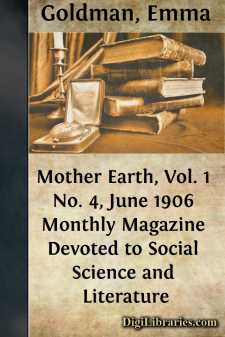Categories
- Antiques & Collectibles 13
- Architecture 36
- Art 48
- Bibles 22
- Biography & Autobiography 813
- Body, Mind & Spirit 142
- Business & Economics 28
- Children's Books 17
- Children's Fiction 14
- Computers 4
- Cooking 94
- Crafts & Hobbies 4
- Drama 346
- Education 46
- Family & Relationships 57
- Fiction 11829
- Games 19
- Gardening 17
- Health & Fitness 34
- History 1377
- House & Home 1
- Humor 147
- Juvenile Fiction 1873
- Juvenile Nonfiction 202
- Language Arts & Disciplines 88
- Law 16
- Literary Collections 686
- Literary Criticism 179
- Mathematics 13
- Medical 41
- Music 40
- Nature 179
- Non-Classifiable 1768
- Performing Arts 7
- Periodicals 1453
- Philosophy 64
- Photography 2
- Poetry 896
- Political Science 203
- Psychology 42
- Reference 154
- Religion 513
- Science 126
- Self-Help 84
- Social Science 81
- Sports & Recreation 34
- Study Aids 3
- Technology & Engineering 59
- Transportation 23
- Travel 463
- True Crime 29
Sort by:
by:
Louis Meynell
THE HOME ON THE FRONTIER. "Dan! Dan! Come quick and see what I brought down with the gun!" "Why, Ralph, was that you I heard shooting? I thought it was father." "No; I was out, down by the river bank, and I brought down the finest deer you ever set eyes on. He was under the bunch of pecan-trees, and I let him have it straight in the neck and brought him down the first crack. Now...
more...
by:
Emma Goldman
MRS. GRUNDY. By Viroqua Daniels.Her will is law. She holds despotic sway.Her wont has been to show the narrow wayWherein must tread the world, the bright, the brave,From infancy to dotard's gloomy grave."Obey! Obey!" with sternness she commandsThe high, the low, in great or little lands.She folds us all within her ample gown.A forward act is met with angry frown.The lisping babes are...
more...
CHAPTER I. THE BERNERS OF THE BURNING HEARTS. “Their love was like the lava flood That burns in Etna’s breast of flame.” Near the end of a dark autumn-day, not many years ago, a young couple, returning from their bridal tour arrived by steamer at the old city of Norfolk; and, taking a hack, drove directly to the best inn. They were attended by the gentleman’s valet and the lady’s maid, and...
more...
by:
Julian Hawthorne
CHAPTER I. A PRELIMINARY CONFESSION. In 1869, when I was about twenty-three years old, I sent a couple of sonnets to the revived Putnam's Magazine. At that period I had no intention of becoming a professional writer: I was studying civil engineering at the Polytechnic School in Dresden, Saxony. Years before, I had received parental warnings—unnecessary, as I thought—against writing for a...
more...
AT the house of Naroumov, a cavalry officer, the long winter night had been passed in gambling. At five in the morning breakfast was served to the weary players. The winners ate with relish; the losers, on the contrary, pushed back their plates and sat brooding gloomily. Under the influence of the good wine, however, the conversation then became general. "Well, Sourine?" said the host...
more...
GREEN FIELDS AND RUNNING BROOKS Ho! green fields and running brooks! Knotted strings and fishing-hooks Of the truant, stealing down Weedy backways of the town. Where the sunshine overlooks, By green fields and running brooks, All intruding guests of chance With a golden tolerance, Cooing doves, or pensive pair Of picnickers, straying there— By green fields and...
more...
INTRODUCTION TO JOE MULLER Joseph Muller, Secret Service detective of the Imperial Austrian police, is one of the great experts in his profession. In personality he differs greatly from other famous detectives. He has neither the impressive authority of Sherlock Holmes, nor the keen brilliancy of Monsieur Lecoq. Muller is a small, slight, plain-looking man, of indefinite age, and of much humbleness of...
more...
THE WOOD-FOLK. Pan led a merrier life than all the other gods together. He was beloved alike by shepherds and countrymen, and by the fauns and satyrs, birds and beasts, of his own kingdom. The care of flocks and herds was his, and for home he had all the world of woods and waters; he was lord of everything out-of-doors! Yet he felt the burden of it no more than he felt the shadow of a leaf when he...
more...
by:
Edgar Jepson
CHAPTER I Lord Loudwater was paying attention neither to his breakfast nor to the cat Melchisidec. Absorbed in a leader in The Times newspaper, now and again he tugged at his red-brown beard in order to quicken his comprehension of the weighty phrases of the leader-writer; now and again he made noises, chiefly with his nose, expressive of disgust. Lady Loudwater paid no attention to these noises. She...
more...
Over a hundred voyageurs were sorting furs in the American Fur Company's yard, under the supervision of the clerks. And though it was hard labor, lasting from five in the morning until sunset, they thought lightly of it as fatigue duty after their eleven months of toil and privation in the wilderness. Fort Mackinac was glittering white on the heights above them, and half-way up a paved ascent...
more...











